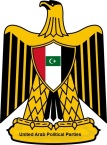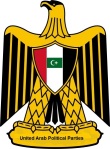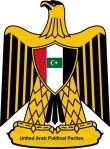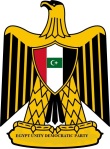
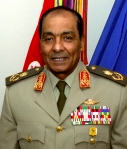
The Egypt Unity Democratic Party and United Arab Political Parties are joining our brothers and sisters in Egypt for Field Marshal Mohamed Hussein Tantawi to step down and to transfer power to civil secular government and not to the Muslim Brotherhood’s Freedom and Justice Party.
Egypt has been in a chaos since Field Marshal Mohamed Hussein Tantawi and.Supreme Council of the Armed Forces took power. We believe that the Supreme Council of the Armed Forces are somehow allied with the Islamic Radicals. Mohamed Hussein Tantawi did not prevent secular violence on liberal and modest Muslims, Copts and Shia.
During the Mohamed Hussein Tantawi’s Maspero Massacre that occurred in October 2011, which resulted in 27 Copts killed. Witness stated that the Salafi block the Copts escape route with swords. Not to mention the numerous churches, homes, business burned and blood shear of innocent people Muslims and Christians alike. Also the Islamic Radicals with Mohamed Hussein Tantawi’S blessing are prosecuting secular Muslims who speak out on personal freedom; The Radicals are using the Judicial System for payback on all opposing the regime and their radical ideology.
Here is article from the Washington Post;
Egypt’s Muslim Brotherhood and its record of double talk
By David Pollock, Published: January 26
David Pollock is a senior fellow at the Washington Institute for Near East Policy.
Amid new strains in U.S.-Egypt ties, some in Washington are studying the tensions and results of recent voting for indications that democracy can take hold. Those who say the Muslim Brotherhood is showing new signs of moderation should compare its message to outsiders, in English, with its message to Egyptians and other Arabs, in Arabic.
Take the Brotherhood’s official English and Arabic Web sites, IkhwanWeb and IkhwanOnline, from one day this month. In English, the home page featured no fewer than eight articles on the solicitude of the Brotherhood toward Egypt’s Coptic Christian minority. The Arabic home page, by contrast, included just two small pieces on this theme. The contrast is sharper on other key issues. On democracy, the English home page one January day featured several articles with headlines such as “Why Islamists Are Better Democrats” and “Democracy: One of the Objectives of Shariah?” There was nothing comparable in Arabic. Instead, Arabic readers saw three pieces against freedom of the press, attacking two top independent Egyptian dailies for printing criticisms of the Brotherhood.
This kind of double talk is part of a pattern. Last February, right after Hosni Mubarak was overthrown, the Brotherhood published what it called an English-language version of Supreme Guide Mohammed Badie’s message to the Egyptian people, celebrating their revolution. In that version, he supposedly spoke mainly of democracy, tolerance, pluralism and coexistence between Egypt’s Muslims and Christians. But the text of his statement, published simultaneously in Arabic, had a totally different tone. In his authentic message, Badie wrote at great length on how Egypt’s uprising was a blessing from Allah — and how much Egyptians needed to stay firm in their Muslim faith to reap its real rewards. The following headlines on the Brotherhood’s Freedom and Justice Party (FJP) led the English site in recent months: “FJP and Christians Stem Sedition,” “FJP Denounces Attack on Israeli Embassy” and “FJP Women’s Committee Provides Free Medical Services in Sharqiyyah City.” But not one of those stories appeared on the Arabic home page. Throughout the past year, women often are referred to by the Brotherhood in English — but almost never in Arabic. The same is true for the English and Arabic Web sites of the FJP, which now controls Egypt’s parliament.
Some might note that all political parties, to at least an extent, engage in mixed messaging. But when this degree of duplicity is demonstrated, the group’s credibility is, or should be, compromised accordingly. Some will say the Brotherhood includes some relatively moderate voices. True, but it is a very disciplined, hierarchical movement: Many of its moderates have left in the past year or have been expelled, and its most senior leaders are the hard-liners. Some will continue to say the Brotherhood is demonstrating that it can modify its positions. But as the movement has gained strength on the street and at the polls in recent months, the modification is mainly For example, the Brotherhood belatedly joined the protests in Tahrir Square, but after Mubarak fell, its leaders opposed any “supraconstitutional” guarantees of individual freedoms and then barred members from further demonstrations. The group initially said it wanted no more than 30 percent of the seats in parliament; then switched to around half; then said maybe a majority, but in coalition with others; and now is drifting toward exercising complete control by taking the most important leadership and committee positions without having established formal coalitions with other parties. As for the upcoming presidential election, the Brotherhood once said it would not participate, then said it might support one of the existing candidates; now it appears it might search for a yet-unmentioned candidate of its choosing.
Meanwhile, one thing that has not changed is the Brotherhood’s hostility toward U.S. policies and interests. In its electoral platform, the FJP begins its section on “Regional Leadership” by explicitly rejecting the old regime’s approach of “supporting occupiers and colonisers, through its presence in the so-called axis of moderation, which is sponsored by the United States.” In August, the Brotherhood called U.S. funding for Egyptian nongovernmental organizations “a disgrace.” In its supposed denunciation of the violent police crackdown on NGOs in December, it nevertheless reaffirmed its continuing opposition to this funding.
Of course, it would be a welcome surprise if the Brotherhood does change into a more truthful and trustworthy interlocutor. In the meantime, however, we should pay no attention to anything the Brotherhood says in English and little attention to any private “assurances” it offers. And given the group’s record of double-dealing, observers should take everything the Brotherhood says in Arabic with due doubt. The United States has to deal with the Brotherhood, but we don’t have to trust anything it says — at least until it proves we should.
Here is article from the Assyrian International News Agency;
Muslim Council in Egypt Evicts 8 Christian Families, Seizes Their Property
(AINA) — National and international rights groups have consistently criticized the recourse to the so-called “reconciliation meetings” — dubbed “Bedouin sittings” — that take place between Copts and Muslim assailant after every attack on Copts. The meetings are conducted under the auspices of state security. Last week a series of meetings were held by radical Muslims to decide on the fate of the Copts in a village in Alexandria, and Muslims insisted that the whole Coptic population of 62 families must be deported because of an unsubstantiated accusation levied against one Coptic man.
Copts in the village of Kobry-el-Sharbat (El-Ameriya), Alexandria, were attacked on January 27 by a mob of 3000 Muslims led by Salafi leaders, who looted and torched homes and shops belonging to Copts. The violence was prompted by allegations made by a Muslim barber named Toemah that a 34-year-old Coptic tailor, Mourad Samy Guirgis, had on his mobile phone illicit photos of a Muslim woman. Mourad denied the accusation and surrendered to the police for fear for his life. Muslims looted and torched his workshop and home after he surrendered to the police, and his entire family, including his parents and his married brother Romany, were evicted from the village. He is still in police detention. (AINA 1-28-2012).
Three “reconciliation meetings” were held at the El-Ameriya village police headquarters. They were attended by Salafi and Muslim Brotherhood representatives from neighboring villages, as well as church representative. Muslims demanded the eviction of all Coptic inhabitants from the village because “Muslim honour had been damaged.”
Many believe that the mobile phone story was fabricated as an excuse to start violence against the Copts. According to the police, the woman in question denied the story and no photos were found on Mourad’s mobile phone, according to Ihab Aziz, a Coptic-American activist who is presently in Egypt.
During the first reconciliation meeting it was agreed that only Copts who were directly involved with the Mourad incident would be evicted, and the church demanded compensation of two million pounds for the innocent Copts whose homes and businesses were torched on January 27. Muslims, especially Salafis from the neighboring villages, refused any kind of compensation and insisted on the eviction of all Copts.
On January 30 a Muslim mob attacked Copts in Kobry-el-Sharbat for the second time, and torched three Coptic homes in the presence of the security forces, “which took the role of an onlooker and made no effort to stop the violence,” according to Joseph Malak, lawyer for the Coptic church in Alexandria. “This proves that the assailants were not afraid of the security forces or the law.”
Muslim representatives demanded the eviction of the wealthy Coptic merchant Abeskhayroun Soliman, together with his four married sons and their families, accusing them of causing sedition by shooting in the air when Muslims broke into and torched their home while the family was inside. “No one was wounded due to the alleged shootings, which the family says never took place. The police authorities issued an arrest warrant for two of the Soliman sons,” said Ihab Aziz.
The Solimans have been in hiding with a Muslim family which saved them from their burning homes, and is presently giving them protection. Muslims threatened that if eight Coptic families were not evicted by February 3rd, all remaining 54 Coptic families in the village would be subjected to violence after Friday prayers. They called it “Friday of Eviction” and “Friday of Clean-up.”
On Wednesday February 1, a hastily organized reconciliation meeting was arranged by security authorities, and was attended by Ebeskharion Soliman and one of his sons.
The terms of the agreement which resulted were:
- eviction of eight Coptic families, namely three of the Mourad families, in addition to five Soliman families.
- selling of the assets of the wealthy Abeskhayron Soliman family within three months by a committee, under the supervision of Salafi shaikh Sherif el Hawary. Soliman has no right to get involved in the sale or even accompany a prospective buyer.
- the Committee is to collect any money accrued from the sale of his land, properties, businesses as well as collect promissory notes pending from business transactions by the Soliman-owned chain of stores.
- in case of non-implementation of this Agreement, all Copts in the Kobry-el-Sharbat village will be attacked, their homes and property completely torched.
Abeskhayron Soliman signed the agreement, which most Copts viewed as “humiliating.”
Father Boktor, who attended the meeting, described the reconciliation agreement as “utter injustice.”
Wissa Fawzi, member of the Maspero Coptic Youth Union in Alexandria, said that Soliman has nothing at all to do with the Mourad story, but signed the agreement to save his family and the Copts in the village, “otherwise there would have been a massacre of the Copts on that Friday.” He said that Security authorities pressured Soliman into accepting the terms of the agreement by threatening him with refusal of police protection for him and his family. “What constitutes the real crisis is the complicity of security officials in the process of displacement,” said Fawzi.
Copts in Kobry-el-Sharbat were stunned after hearing the news of the eviction of the “top Copt” in their community, whose wealth is estimated at more than 20,000,000 Egyptian pounds. “There is a feeling of humiliation and being completely under the mercy of the radical Muslims,” said Rami Khashfa of the Alexandria Maspero Youth Union “they are terrorized and are scared of the future. Copts in the neighboring villages are also scared.” He said that Copts in the village are thinking of moving elsewhere.
Speaking on US-based Christian TV channel Al-Karma, Magdy Khalil, head of the Middle East Freedom Forum, said that reconciliation meetings made up of Salafis and members of the Muslim Brotherhood, and arranged by security officials are illegal and forced eviction is one of the crimes under international law. “Who gave them the right to form a committee headed by a Salafi to sell Christian property? This is thuggery and blatant targeting of Copts.”
Khalil called on the Coptic Melli Council, which is the civilian body that represents Copts in the Egyptian State, to protest this agreement and ask for the return of the Copts to their homes. “If we accept it, this will open the door for an avalanche of forced evictions.” He believes that radical Muslim have a bigger plan they hope to achieve by terrorizing the Copts, namely displacing and dispersing them from places with high Coptic population density, taking their property and weakening them economically.
Ihab Aziz, like many others, believes that “Coptic capital” is targeted everywhere in Egypt. He said that members of the Egyptian parliament have been made aware of the El-Ameriya forced displacement, and the issue will be brought before parliament shortly.
By Mary Abdelmassih
Here is another article from the National;
Adel Imam’s jail sentence is an indictment of Egypt’s Islamists by Ali Khaled
He’s the Arab world’s most recognisable artist, a comedic genius. He is also a UN goodwill ambassador alongside Zinedine Zidane and Angelina Jolie. And now he may be going to jail. Adel Imam, Egypt’s most famous film star, was last week sentenced to three months in jail with hard labour and fined 1,000 Egyptian pounds (Dh610) for “defaming Islam” in some of the roles he has played during a 40-year career.
The case against Imam was filed before the revolution by Asran Mansour, a lawyer with ties to Islamist groups, and languished in the courts for months. His alleged crimes, absurdly, are past satirical roles that poked fun at fundamentalists. That the sentence, which Imam will appeal, was passed after the Muslim Brotherhood’s recent parliamentary gains is no coincidence.
It reflects, however, a worrying trend. Amid the euphoria that swept the country almost a year ago, demand for books previously banned has skyrocketed. Films and documentaries about life under the oppressive regime, we were told, were to be removed from censors’ lists.
But that promise of a brave new world did not last long, as Imam’s case shows. Like Tahrir’s revolution, the cultural awakening is facing its own obstacles.
The sentence against Imam and similar charges against others smell of a witch hunt, comparable to America’s McCarthyism of the late 1940s to 1950s that ruined lives based on charges of communism. By passing such outrageous sentences, Egypt’s courts are sending the wrong signal: old scores can still be settled in post-revolutionary Egypt, and prominent figures are fair game.
And they don’t get much bigger than Adel Imam. Imam’s career has spanned the rule of Gamal Abdul Nasser, Anwar Sadat, Hosni Mubarak and now the Supreme Council of Armed Forces. His films, mostly comedies, have always had a strong dose of political satire.
His targets, however, were indiscriminate: the government, extremists of all religions and Egyptian society as a whole have all been on the receiving end.
The film Al Irhabi (The Terrorist) tackled the country’s Islamic fundamentalists; the play Al Zaeem (The Leader), corrupt leadership. In Al Irhab wil Kabbab (Terrorism and Kebab), he poked fun at terrorist groups and their often absurd demands.
In 2006, he starred in the screen adaptation of author Alaa Al Aswaany’s Yacoubian Building, set in 1990 at the time of the first Gulf war, which scathingly satirises the breakdown of Egyptian society since the 1952 revolution.
Two years later, his comedy Hassan and Morqos, in which he played a Coptic Christian opposite another stalwart of Egyptian cinema, Omar Sharif, presaged the sectarian tensions that we see today.
But his finest hour came in the 1979 comedic play Shahed Ma Shafsh Haga (The Witness Who Saw Nothing), in which he played Serhan Abdel Baseer, a hapless children’s television actor trying to make ends meet, who ends up as the main witness in the murder trial that he is clueless about. The play verges on the slapstick and it’s infinitely quotable lines have made their way into Arabic popular culture.
But read between the lines and there are references to an oppressive government, official corruption, prostitution and other social ills.
More than three decades before the Arab Spring, his character spoke of the downtrodden Egyptian, a victim of social inequality and political injustice. If Serhan lived in 2011, he would have been in Tahrir Square.
A lot of Imam’s work has landed him in trouble. But he had been allowed artistic freedoms denied to others, which brought accusations that he was a Mubarak supporter.
Now by convicting Imam on such flimsy charges, Egypt’s Islamists have shown that, for them, the new order is an opportunity for payback. Their assuring words about an inclusive, non-sectarian state are starting to sound hollow indeed.
Now You make your Judgment On Egypt ‘s Field Marshal Mohamed Hussein Tantawi and The Radical Muslims.
Tags: Adel Imam, Al Nour party, arab, coptic, egypt, Egypt Unity Democratic Party, Field Marshal Mohamed Hussein Tantawi, Freedom and Justice Party, islam, Islamic Radicals, muslim, Muslim Brotherhood's, nationalism, Salafi, secular government, shia, sunni, Supreme Council of the Armed Forces, United Arab Political Parties, United Arab Political Parties Manifesto, unity
